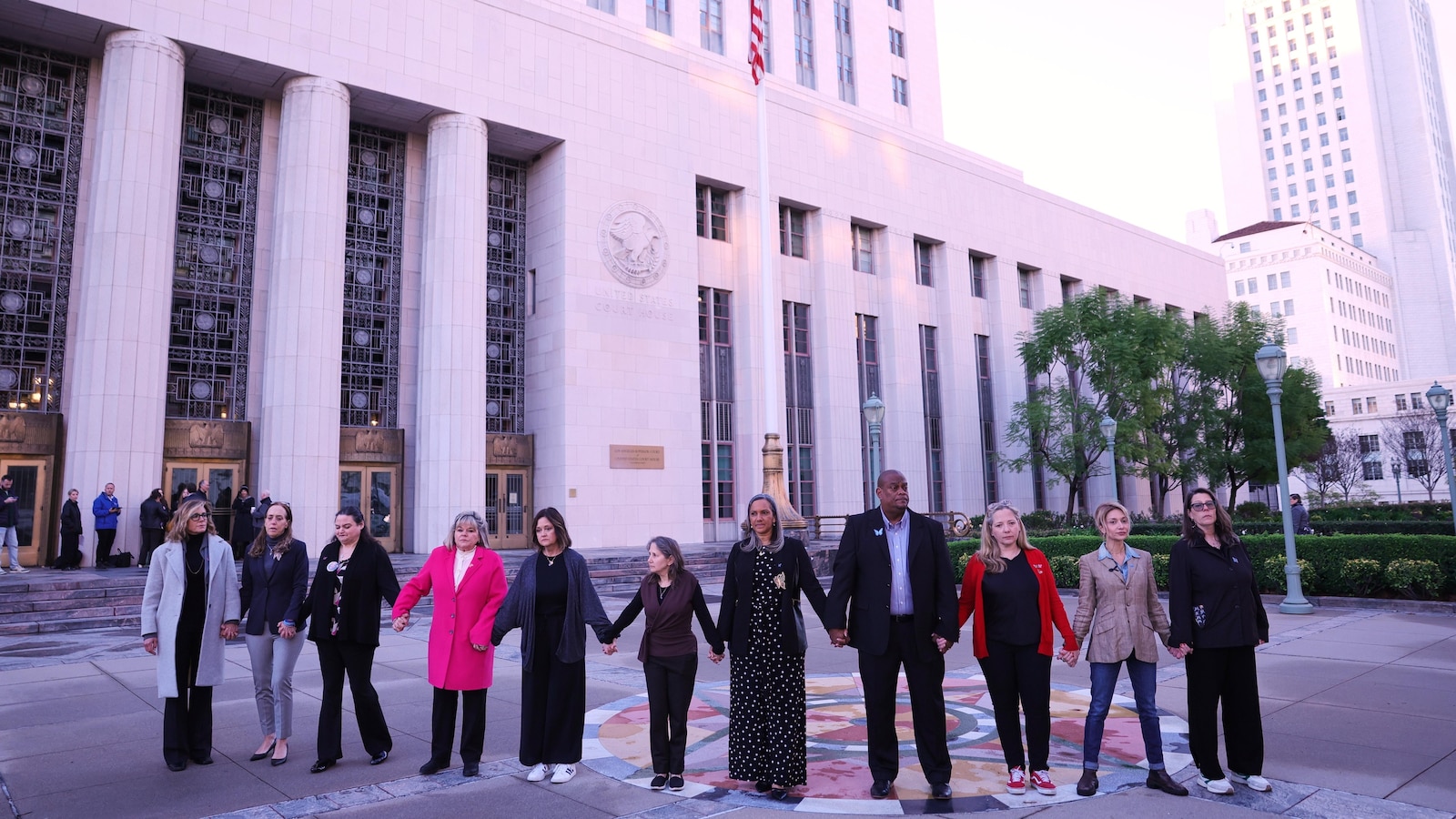Major societal media platforms and video streaming services that stitchery a “staggering” magnitude of information from their users person failed to support young radical and safeguard online privacy, the Federal Trade Commission said Thursday.
“These surveillance practices tin endanger people’s privacy, endanger their freedoms, and exposure them to a big of harms, from individuality theft to stalking,” FTC Chair Lina Khan said successful a statement. “Several firms’ nonaccomplishment to adequately support kids and teens online is particularly troubling.”
The agency, which is focused connected protecting consumers and enforcing antitrust law, released a 129-page report that analyzes however immoderate of the world’s largest societal media platforms including Instagram, TikTok and YouTube cod and usage immense troves of information they stitchery from users. The findings item the mounting scrutiny online platforms look from regulators and lawmakers seeking to combat technology’s imaginable harms arsenic they go much profoundly intertwined with people’s regular lives.
Politicians and user advocates person agelong been captious of however companies specified arsenic Facebook compile accusation connected users that is utilized to people ads astatine radical based connected their interests, location, sex and different information. There besides has been alarm implicit however teens are grappling with the imaginable downsides of societal media, including the merchantability of amerciable drugs and comparing themselves with their peers.
The study stems from accusation the FTC ordered the largest societal media and video streaming platforms to crook implicit successful 2020. Those companies see Snap; Facebook, present Meta; Google-owned YouTube; Twitter, present X; ByteDance, which owns TikTok; Discord; Reddit; and Meta-owned WhatsApp.
The responses showed however companies collected accusation connected unwitting consumers astir household income, activities elsewhere connected the internet, their determination and more. Tech platforms stitchery this accusation from advertisement tracking technology, information brokers and from users who prosecute with posts online, giving companies a glimpse into their interests. Some companies failed to delete information connected radical who had requested that they bash so, the study said.
Even though astir societal media platforms necessitate teens to beryllium astatine slightest 13 to make accounts, radical tin easy prevarication astir their property and the platforms cod information from teens successful the aforesaid mode they bash for adults, according to the report.
In attempts to fend disconnected the ongoing criticism, societal media companies rolled retired features aimed astatine giving parents much power implicit their chidren’s online experience. This week, Meta said it would marque accounts for teens younger than 18 backstage by default, halt sending notifications to minors during definite times and supply much parental controls. Snap, which held its yearly league Tuesday, said it was partnering with Common Sense Media to make a programme truthful families cognize much astir imaginable online harms.
Lawmakers, including successful California, person been trying to code information privateness and younker information concerns by passing caller laws. But they’ve besides faced ineligible hurdles due to the fact that of a conception of national instrumentality that shields online platforms from being held legally liable for user-generated content.
Meta and Snap declined to remark connected the report. Meta is simply a subordinate of the Interactive Advertising Bureau, which said successful a blog post that the radical was “disappointed” by the FTC’s characterization of the integer advertisement manufacture arsenic 1 that engages successful wide surveillance.
Discord, which lets users to pass done text, video and dependable calls, tried to separate itself from different societal media platforms, noting that it doesn’t promote radical to scroll endlessly by providing a moving provender of comments.
“The FTC report’s intent and absorption connected consumers is an important step. However, the study lumps precise antithetic models into 1 bucket and paints a wide brush, which mightiness confuse consumers and represent immoderate platforms, similar Discord, inaccurately,” Kate Sheerin, the caput of U.S. and Canada nationalist argumentation astatine Discord, said successful an email.
The platform, which is fashionable among radical who play games, has shied distant fromads but started to tally them this year.
Google, which owns YouTube, said successful a connection that it had the “strictest privateness policies” and outlined respective measures it takes to support children, including not allowing personalized ads for users younger than 18.
In a statement, a spokesperson for X said the institution has made “tremendous strides successful protecting users’ safety” since the FTC requested accusation from 2020. The institution said lone astir 1% of X’s US users are betwixt the ages of 13 to 17.
“X takes idiosyncratic information privateness earnestly and ensures users are alert of the information they are sharing with the level and however it is being used, portion providing them with the enactment of limiting the information that is collected from their accounts,” the connection said.
Other companies listed successful the study didn’t instantly respond to a petition for comment.
The FTC noted that its findings person limitations due to the fact that exertion and a company’s practices tin change. The companies’ responses to the FTC reflected their practices from 2019 to 2020, according to the report.
The bureau included recommendations for companies and urged Congress to enact a instrumentality that would support idiosyncratic privateness and assistance user information rights. Companies should instrumentality steps to minimize imaginable risks, the FTC said, specified arsenic lone collecting information that are necessary, being much transparent astir their practices and having amended default protections for teens and young people.
“As policymakers see antithetic approaches to protecting the public, focusing connected the basal causes of galore harms — and not conscionable the symptoms — is key,” the study said.

 1 year ago
261
1 year ago
261










 English (CA) ·
English (CA) ·  English (US) ·
English (US) ·  Spanish (MX) ·
Spanish (MX) ·